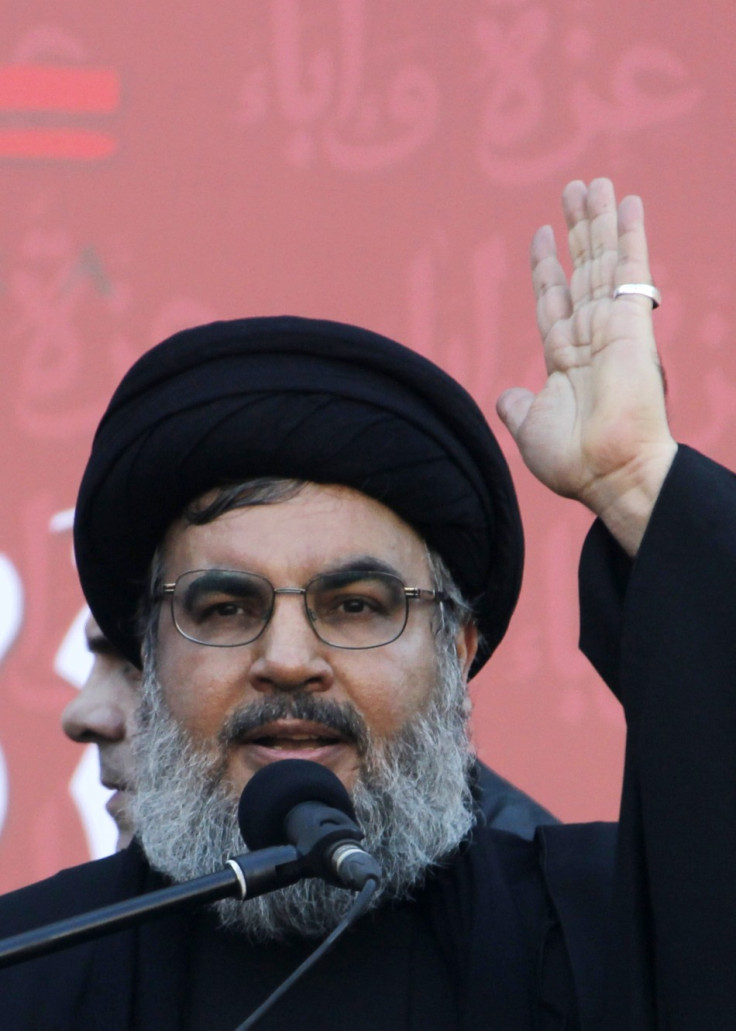Syria: If Assad Falls will Hezbollah Abandon War against Israel?

Despite Syrian president Bashar al-Assad's brutal repression of his own people, Hezbollah has continued to support Damascus - and in doing so has tarnished its credibility.
While the Lebanese Shia militant and political group has benefited from ties with the regime, one of its founding principles is to fight repression and support the people, though this primarily applies to Israel.
As the regime enters its final stages, political observers are watching Hezbollah in anticipation of its next move. What will Hezbollah do once Assad is toppled?
Hezbollah's Credibility on the Cards
The instability and turmoil in Syria has reverberated across the border in Lebanon, where it has deepened sectarian divides, which poses a challenge to Hezbollah's effectiveness as a political force.
Sunni groups, which have affirmed their support for the Syrian revolution, are furious with Hezbollah for supporting the Assad regime.
Hezbollah, however, is not the only political group in Lebanon to support the Assad regime. Other members of the March 8 bloc, Lebanon's ruling coalition, have also helped prop up the beleaguered regime, including the pro-Shia Amal Party and the Christian Free Patriotic Movement.
The political divisions within Lebanon have been reflected by the demonstrations that have taken place in Beirut and Tripoli, as people rally both for and against Assad.
As a militant political group that has supported the other revolutions that have taken place across the Arab world, Hezbollah has been singled out for its hypocrisy in backing Assad.
Arab youths, who were previously sympathetic to Hezbollah and identified with its cause, now criticise its leader, Sayyed Hassan Nasrallah, for putting his own political survival ahead of the interests of the people.
They are not alone. Former Hezbollah chief Sheikh Sobi Tufaili is now one of the group's greatest critics.
In a recent interview on MTV Lebanon, Tufaili accused Hezbollah of contributing to strife between Sunni and Shia groups. In an effort to further discredit Hezbollah, he even claimed that sources close to the group said it would align with it its arch-enemy, Israel, if the Assad regime falls.
What's Next for Hezbollah?
While the future of Hezbollah in Lebanon is not in doubt, the eventual collapse of the Syrian regime could force it to scale back its regional ambitions and the alliances it forges within the Arab world.
Hezbollah might initially refocus its military objectives in a bid to assert further control domestically, though this runs the risk of provoking a backlash from the Sunni majority, which would destabilise Lebanon.
Another option for Hezbollah is to focus its militancy on Israel, a move that would find favour in Iran. Despite issuing repeated threats and accusations against Tel Aviv, it is, however, unlikely to launch an actual attack on the country.
In addition to a third Israel-Lebanon war being disastrous for both sides, Hezbollah would find itself operating at a disadvantage once the Assad regime falls and it loses its financial support.
A third possibility would be for Hezbollah to focus on domestic politics, which would enable it to retrench and push for reforms within Lebanon.
Hezbollah has been more politically active in Lebanon since 1992. If it intends to acquire even more political influence in future, it must first repair the damage that its reputation has sustained by backing the wrong horse. To do this, it needs to build bridges with Sunni and Druze communities within Lebanon, rather than start a violent conflict with Israel.
© Copyright IBTimes 2025. All rights reserved.




















